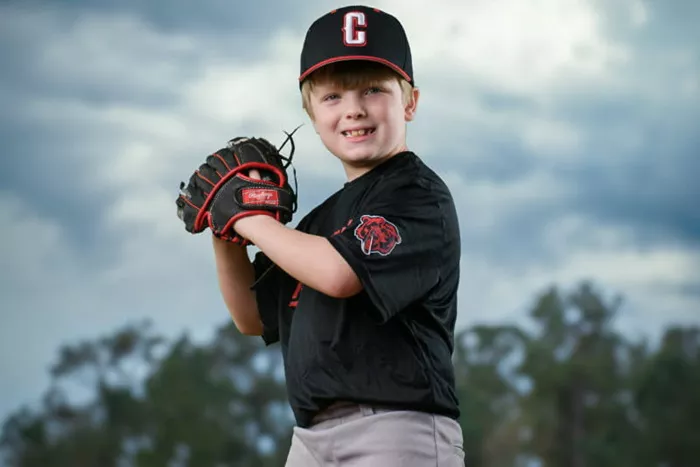Konner Hall, a young boy from Cottonwood, Alabama, exhibited an early knack for reaching developmental milestones. He began walking at just 9 months and was potty trained by 14 months. However, frequent ear infections were a recurring issue for Konner. So, when he woke up with a low-grade fever at 18 months, his parents, Stephanie and Justin Hall, assumed it was another ear infection.
By that evening, Konner’s temperature soared to 104 degrees, prompting a visit to the emergency room. The doctor attributed the fever to dehydration, sending the family home with instructions to increase Konner’s fluid intake.
A couple of days later, Konner’s fever spiked again, exceeding 104 degrees. Desperate for answers, his parents took him to another ER, only to receive the same diagnosis of dehydration.
Stephanie and Justin remained unconvinced. Konner’s symptoms were worsening—his lips were swollen, his tongue was covered in bumps, his body was rash-covered, and he was in significant pain.
The following morning, the Halls visited their pediatrician, who quickly identified Konner’s condition as Kawasaki disease. This illness affects small and medium blood vessels, including coronary arteries, and typically impacts children under five, more often boys than girls. It can become life-threatening if not diagnosed within the first five to seven days.
Fortunately, Konner was diagnosed on the fifth day. Over the next week, he received standard antibody infusions to treat the disease. He was discharged once his fever subsided for 24 hours but was readmitted shortly after when his fever returned. Another infusion was administered, and he was sent home once more. This time, the fever did not return.
For six months, Konner took daily aspirin to prevent fevers and blood clots. Now 8 years old, Konner is a healthy and energetic boy. He enjoys playing baseball, coloring, and wrestling, and he is excelling academically, recently being considered for the gifted and talented program.
“Having a 104-degree temperature for days on end at 18 months old could have messed with Konner’s brain, but it didn’t,” said Stephanie.
Konner proudly adds, “Kawasaki disease didn’t weaken me. It made me stronger.”
[inline_related_posts title=”You Might Be Interested In” title_align=”left” style=”list” number=”6″ align=”none” ids=”10303,10276,10273″ by=”categories” orderby=”rand” order=”DESC” hide_thumb=”no” thumb_right=”no” views=”no” date=”yes” grid_columns=”2″ post_type=”” tax=””]
































